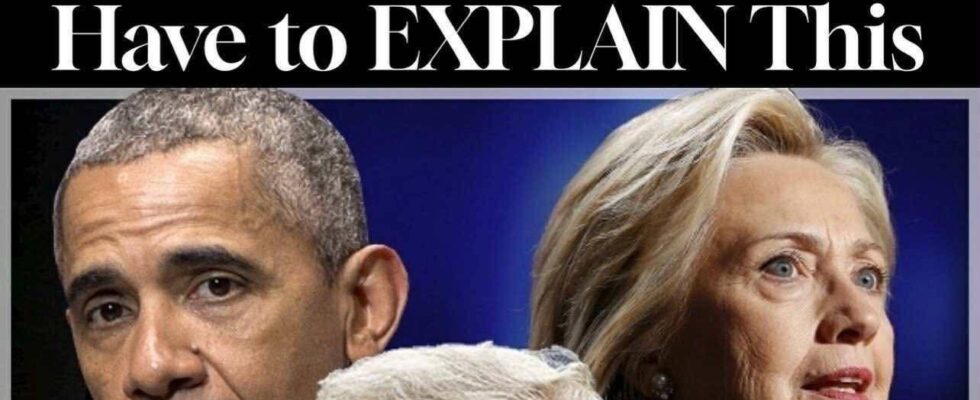Former President Obama’s Stance on Online Discourse Regulation
Former President Barack Obama has recently articulated a controversial vision regarding the future of online discourse, sparking significant debate across political and social platforms. His perspective advocates for a degree of governmental oversight aimed at controlling the spread of disinformation and misinformation. During a forum held in Connecticut on June 17, 2025, Obama expressed his concerns about the detrimental effects of digital falsehoods on public trust and democratic processes. This discussion raises important questions about the balance between protecting free speech and ensuring the integrity of information shared in the digital age.
The Threat of Disinformation
In his address, Obama emphasized that the rise of digital platforms has made it increasingly easy for false information to proliferate. He pointed out that disinformation campaigns do not necessarily need to convince the public of falsehoods; instead, their primary objective is to create confusion and overwhelm audiences with contradictory narratives. This tactic undermines the capacity of individuals to discern truth from falsehood, ultimately leading to a fragmented society where trust in institutions is eroded.
To illustrate this point, Obama referenced specific instances, such as the spread of conspiracy theories during the COVID-19 pandemic, which not only misled the public about health guidelines but also incited distrust in healthcare providers and government institutions. Similarly, misinformation surrounding elections has been shown to influence voter behavior and perceptions, often leading to decreased participation and increased polarization among the electorate. These examples highlight the urgent need to address the challenges posed by digital disinformation in a comprehensive manner.
The Role of Government in Regulating Speech
While Obama has consistently championed free speech throughout his political career, he now suggests that limited government intervention may be necessary to address the harmful impacts of online disinformation. He proposes the idea of implementing “restraints” or regulations that would enable authorities to monitor and possibly restrict the dissemination of harmful content. This suggestion has ignited a heated debate about the role of government in regulating speech and the potential consequences such measures could have on personal freedoms.
Critics of Obama’s stance argue that any form of government regulation could lead to a slippery slope of censorship. The fear is that subjective definitions of “harmful content” could be abused, leading to the suppression of legitimate discourse and dissenting opinions. This sentiment was echoed during public forums and social media discussions following Obama’s comments, where many voiced concerns about potential overreach by government authorities. The challenge lies in determining where to draw the line between protecting the public from harmful misinformation and preserving the fundamental right to free expression.
Public Reaction and Concerns
The response to Obama’s statements has been mixed. Proponents of regulation argue that without some level of oversight, the spread of false information could jeopardize the democratic process and lead to societal discord. They contend that measures to combat misinformation are crucial for maintaining an informed electorate. Supporters cite examples such as the influence of social media on political polarization and the rise of extremist groups, asserting that unchecked disinformation contributes to societal unrest.
On the other hand, critics warn that government intervention could lead to censorship and an infringement on free speech rights. Many fear that the criteria for what constitutes harmful content could become too subjective, leading to potential abuses of power. The notion of a “fact-checking” body, funded or overseen by the government, raises alarms about possible biases and conflicts of interest, prompting fears that certain viewpoints may be unfairly marginalized. The implications of such a regulatory framework could have lasting effects on public discourse and civic engagement.
Potential Solutions and Alternatives
In light of these challenges, some experts suggest exploring alternative approaches to combat disinformation without resorting to stringent regulations. Strengthening media literacy education is one such solution, which could empower individuals to critically evaluate the information they encounter online. Programs designed for schools and community organizations could teach people how to identify reliable sources, recognize bias, and understand the mechanics behind social media algorithms that may amplify falsehoods.
Additionally, fostering collaborations between tech companies and independent fact-checking organizations can enhance the ability to identify and address false information more effectively. For example, initiatives such as partnerships between platforms like Facebook and third-party fact-checkers have shown promise in curbing the spread of misinformation. These strategies may provide a more balanced approach to preserving both free speech and the integrity of public discourse, ensuring that individuals are equipped to navigate the complex landscape of online information.
The Future of Digital Communication
As society navigates the complexities of digital communication, the dialogue surrounding the regulation of online discourse will likely evolve. Obama’s comments serve as a crucial reminder of the ongoing struggle to balance the right to free expression with the need to protect democratic values from the dangers posed by misinformation. The challenge lies in finding a solution that ensures a safe and informative digital landscape while safeguarding foundational rights.
Ultimately, as technology continues to shape our interactions and perceptions, the approach to managing online discourse will require ongoing reflection, dialogue, and perhaps, innovative regulatory frameworks. The digital landscape is continuously evolving, and so too must our strategies for ensuring that it remains a space conducive to healthy, constructive conversation. Engaging diverse voices from various sectors—including policymakers, technologists, educators, and civil society—will be essential in crafting a future where both free speech and factual integrity are upheld in the digital realm.

















